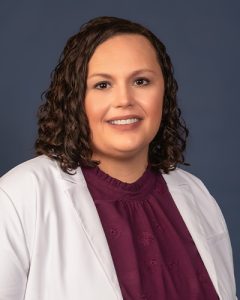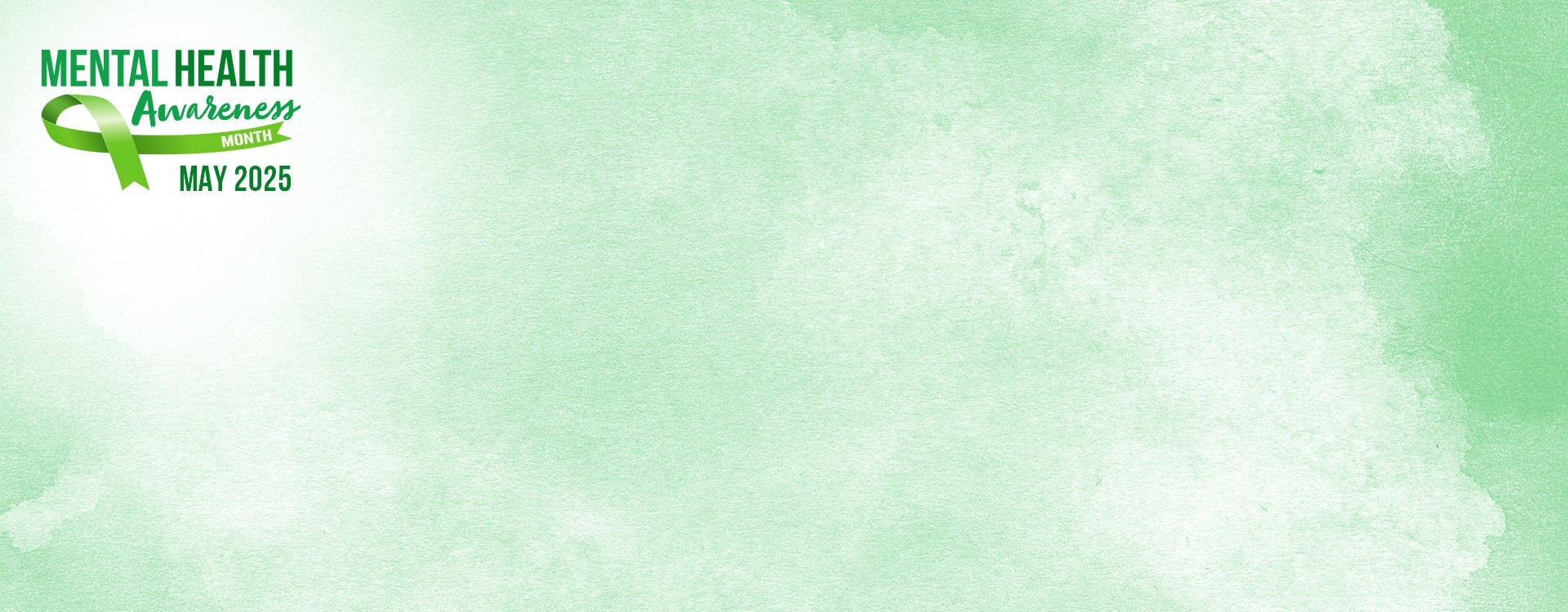Mental Health Awareness Month serves as a crucial reminder that mental wellness isn’t separate from physical health—it’s fundamental to our overall well-being. And it impacts us all at some point in our lives. According to the National Alliance on Mental Illness, 1 in 5 American adults experience a mental health condition each year but just 47% of those with mental illness receive care.
This May, we’re sharing perspectives from the Ovatient team about why this issue is so important and how we are working to provide better, more integrated and coordinated care options for patients.
This article contains serious, possibly triggering subject matter, including mention of self-harm and suicide. If you are currently thinking about or planning to harm yourself or someone else, please call 911, go to the nearest hospital emergency room, or call, text or chat the Suicide and Crisis Lifeline at 988.
Holly M. Drutarovsky, PA-C
 One of my favorite quotes I heard recently goes something like this: “Do you remember that most difficult, if not seemingly impossible thing that you could have never imagined getting through in that moment? You already made it through that thing that you thought you’d never be able to face. And you will again…and again…and again.” It is so important to realize that it is okay to not be okay, but that it is not permanent and things will get better.
One of my favorite quotes I heard recently goes something like this: “Do you remember that most difficult, if not seemingly impossible thing that you could have never imagined getting through in that moment? You already made it through that thing that you thought you’d never be able to face. And you will again…and again…and again.” It is so important to realize that it is okay to not be okay, but that it is not permanent and things will get better.
There are plenty of resources available to you, as well as people that love and care about you, to help you through even the most seemingly impossible scenarios. Sometimes it can be difficult to reach out or accept help, thinking that you don’t need the help or that it is too much to ask from someone. However, reaching out or accepting help can and often does lead to healing and maybe even realizing just how many people in your family, friends, or even your healthcare team truly do care about YOU, exactly as you are, even despite going through whatever challenges you might be facing.”
Amy Lukowski, Psy.D.
 Mental health has been the heart of my life’s work, marked by dedication to individual treatment and implementing evidence-based practices across various modalities. Witnessing the evolution from one-on-one care to telephone, text, video, and chat has been remarkable. This progression has enabled me to reach broader populations, enhancing behavioral health and improving individuals’ quality of life.
Mental health has been the heart of my life’s work, marked by dedication to individual treatment and implementing evidence-based practices across various modalities. Witnessing the evolution from one-on-one care to telephone, text, video, and chat has been remarkable. This progression has enabled me to reach broader populations, enhancing behavioral health and improving individuals’ quality of life.
Throughout my career, I have been inspired by the incredible human spirit. The resilience shown by individuals in their darkest times is a testament to their strength. Each day, I am moved by my patients’ desire to better themselves for their own sake and their loved ones.
However, the journey has had its challenges. In my culture, like many others, mental health is stigmatized. I have seen firsthand the struggles of those I care about who face untreated behavioral health conditions. These experiences have strengthened my resolve to advocate for mental health awareness and treatment, ensuring no one suffers in silence.
As we observe Mental Health Awareness Month, I am reminded of the importance of this work. It is a time to reflect on progress and renew my commitment to breaking down barriers, fostering understanding, and providing support. My dream is to be a world where mental health is prioritized, and everyone can lead a fulfilling, healthy life.
Liz Adkison, APRN-CNP
 My approach to care involves treating “the whole patient” which encompasses both physical and mental health. We know that our mental health and physical health are woven together so it’s so imperative that as primary care providers we address all aspects of an individual’s health. I am so thankful that Ovatient recognizes the importance of integrating behavioral health into the fabric of the care we provide. Since the launch of our integrated behavioral health program, I have seen firsthand the value it has brought to the patients I care for and we are just getting started!
My approach to care involves treating “the whole patient” which encompasses both physical and mental health. We know that our mental health and physical health are woven together so it’s so imperative that as primary care providers we address all aspects of an individual’s health. I am so thankful that Ovatient recognizes the importance of integrating behavioral health into the fabric of the care we provide. Since the launch of our integrated behavioral health program, I have seen firsthand the value it has brought to the patients I care for and we are just getting started!
Stephanie Stetler, APRN-CNP
 When I think of why mental health is important, I think back to a memory that will forever stay with me from the days I was working as a nurse in the ER.
When I think of why mental health is important, I think back to a memory that will forever stay with me from the days I was working as a nurse in the ER.
A 15-year-old boy was brought in and we later learned that the boy had died by suicide as a result of bullying at school. Obviously, this was a very traumatic experience for the family, as well as the team who cared for this boy. I truly can’t think of a better example of why mental health is so important, and it starts at such a young age. I believe we need to provide everyone with easy access to mental health support, because you never know when it can save a life.
Lisa Belisle, MD
 As Ovatient’s Medical Director, I believe integrated behavioral health isn’t just important—it’s essential for quality patient care.
As Ovatient’s Medical Director, I believe integrated behavioral health isn’t just important—it’s essential for quality patient care.
Nearly 1 in 5 adults experience mental health challenges, yet traditional healthcare treats physical and mental health separately. When we integrate behavioral health into primary and urgent care, we catch issues earlier, reduce ED visits, and improve chronic disease management.
I’ve witnessed the human impact: patients with diabetes whose blood sugar improved once we addressed underlying anxiety, individuals with chronic pain finding relief when we treated both physical symptoms and accompanying depression.
In virtual care, this integration becomes even more powerful. We connect patients with behavioral health support in real-time, removing barriers like transportation and scheduling that prevent people from getting mental health care.
Our goal at Ovatient is to treat the whole person, not isolated symptoms. When we address both physical and mental health together, we don’t just improve outcomes—we restore hope and help people reclaim their lives.
Michael Dalton, CEO
 Mental Health Awareness Month holds deep personal meaning for me. Growing up, mental health was openly discussed in our home—my dad was CEO of Community Support Services, a clinic caring for clients with severe and persistent mental illness; and my mom worked in medical records and billing within mental health and emergency medicine. Their work taught me early that mental health is foundational to overall health and is not something to be taken for granted.
Mental Health Awareness Month holds deep personal meaning for me. Growing up, mental health was openly discussed in our home—my dad was CEO of Community Support Services, a clinic caring for clients with severe and persistent mental illness; and my mom worked in medical records and billing within mental health and emergency medicine. Their work taught me early that mental health is foundational to overall health and is not something to be taken for granted.
Unfortunately, nothing could have prepared me for learning a friend died by suicide. Their passing was a stark reminder of the silent battles many face – and of the gaps that still exist in our systems of care. It strengthened my resolve to ensure that no one feels alone or underserved when they reach out for help.
Now, leading Ovatient, I’ve witnessed firsthand how critical open dialogue and compassionate care can be. Recognizing vulnerability or asking for help isn’t weakness; it’s strength. That’s why I believe so strongly in our model of whole-person care. Mental health is health, just as telehealth is health. As May concludes, let’s remember mental health deserves attention every month. Let’s prioritize awareness, empathy, and support—always.



